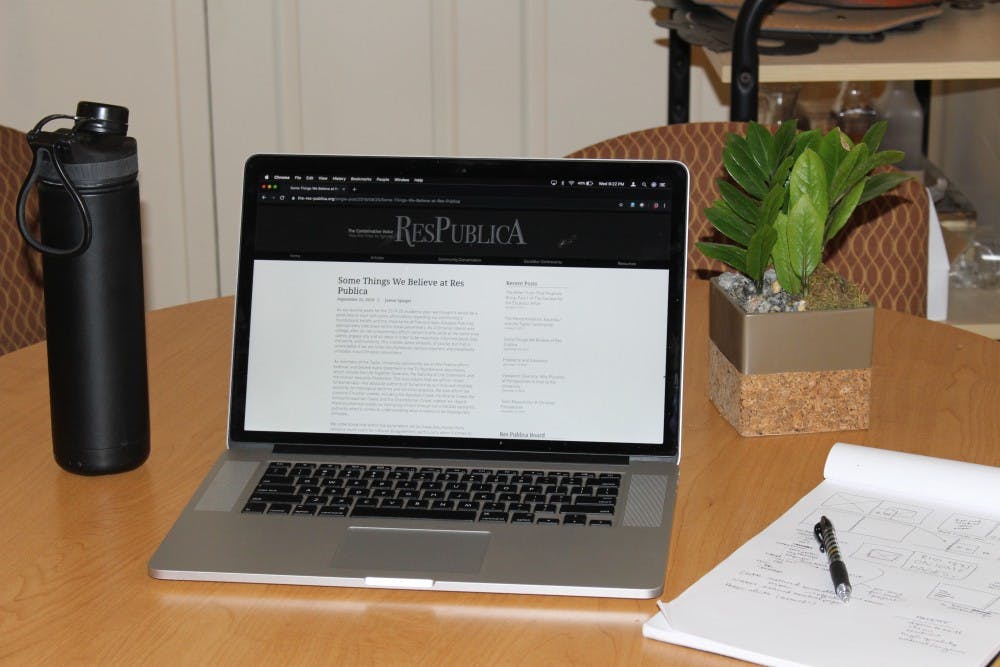
Sam Jones
Although “Excalibur” offered Taylor an open invitation of dialogue concerning political and social issues, the newsletter, perhaps unintentionally, spear-headed the revelation that certain parties on campus would rather ignore the topics altogether.
For example, within days of the initial “Excalibur” distribution, the former administration addressed the website with an air of condemnation.
“I am disappointed in the drafters and distributors of ‘Excalibur’ for their method of addressing these issues,” former President P. Lowell Haines wrote in a campus-wide email.
In response to this email, “Excalibur” relocated their platform to be solely online, hoping to solve the issues addressed in the email. This new online platform is known as Res Publica.
Two days after its initial launch, Res Publica was temporarily taken down per request of Haines.
Not only have past Taylor administrators been opposed to a range of political and social conversations, but certain staff and faculty seem to be as well.
Upon receiving the invitation to write this article, I reached out to four people: Jim Spiegel and Richard Smith ― authors and members of Res Publica, referenced later in this piece ― and two other community members, all of whom were asked about their opinions regarding Res Publica.
“Thank you for your consideration but I’m not really interested in talking about Excalibur/Res Publica,” Felicia Case, director of the Office of Intercultural Programs, wrote in an email. “Their tag line states that they are a ‘voice that you can choose to ignore’. I choose to ignore them.”
Additionally, I contacted a faculty member who declined to comment on the matter.
While I respect any individual’s decision to not comment, this does not contribute to an environment of fruitful communication.
Taylor, as a Christian university, is charged with the responsibility of facilitating conversation on all topics to the best of the ability of the university. Ignoring these and hoping that they will just go away ― especially topics that are polarizing, divisive or controversial ― is perhaps the most inefficient way to do this.
We, as a Christian community, should be able to use the resources of our community to search for answers regarding tough topics. We should use several routes of thought and various worldviews, conservative or liberal, to better understand how we should operate as a community. A rigid and unwavering thought process on either side destroys the conversation process.
Solutions should be sought to drive open dialogue. We don’t have to agree, but we should at least communicate on why we disagree.
“I think it is necessary for a Christian university campus to allow freedom of association among its members as they willingly form distinct cooperatives of like-minded people for the sake of learning and discussion amongst themselves and with others,” Richard Smith, Associate Professor of Biblical Studies, said. “Res Publica is just one example among many, and it just happens to come at things from a conservative perspective.”
Professor of Philosophy and Religion Jim Spiegel feels similarly to Smith’s opinion on open-mindedness.
“I would encourage everyone in our community to read broadly, and to rigorously engage ideas of all kinds, and that may include Res Publica for anyone who is interested,” Spiegel said. “I would even invite (dissenters) to submit a piece to Res Publica defending their position. If we are unwise for taking the approach we do, we would like someone to show us why this is the case.”
I wouldn’t say that I agree with everything that Res Publica has to say. But I do appreciate that they are willing to discuss topics of all deviations, regardless of personal opinions or biases. This quality of the platform legitimizes them as a necessary presence on Taylor’s campus.





